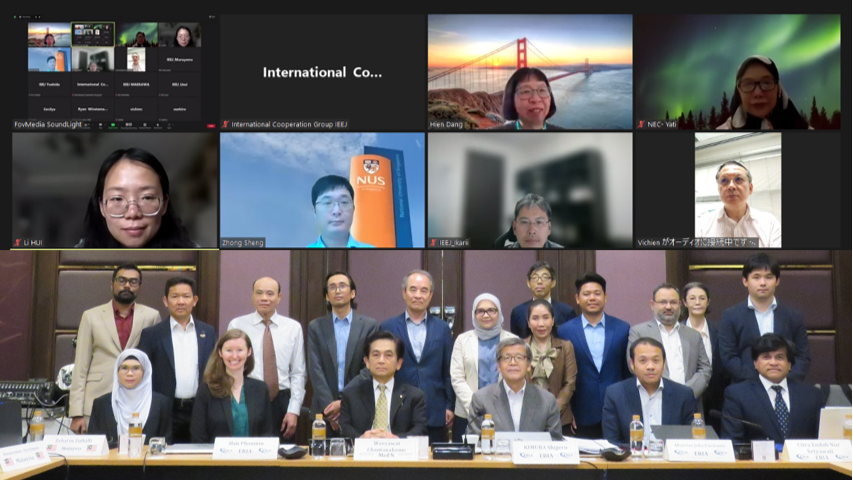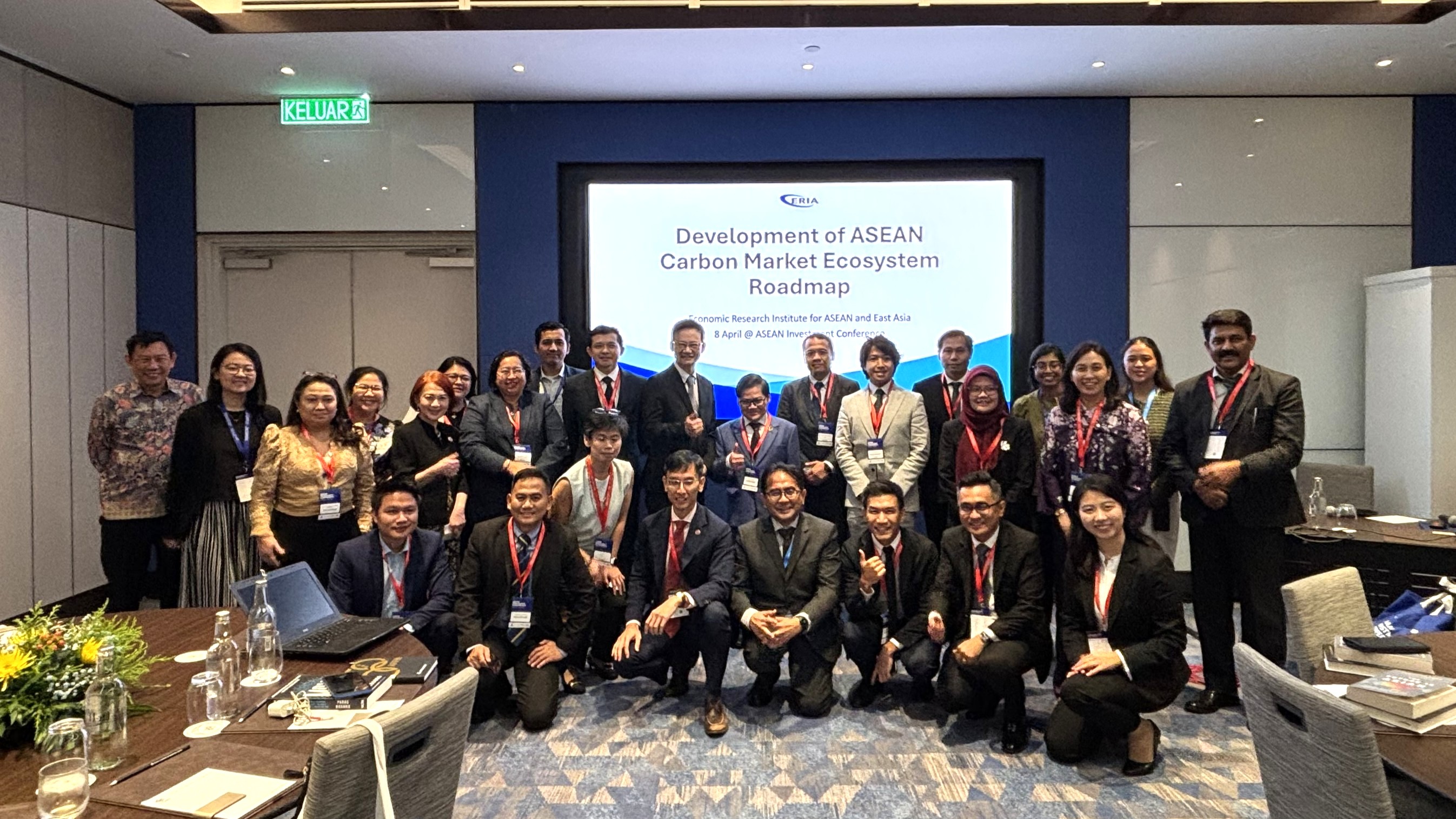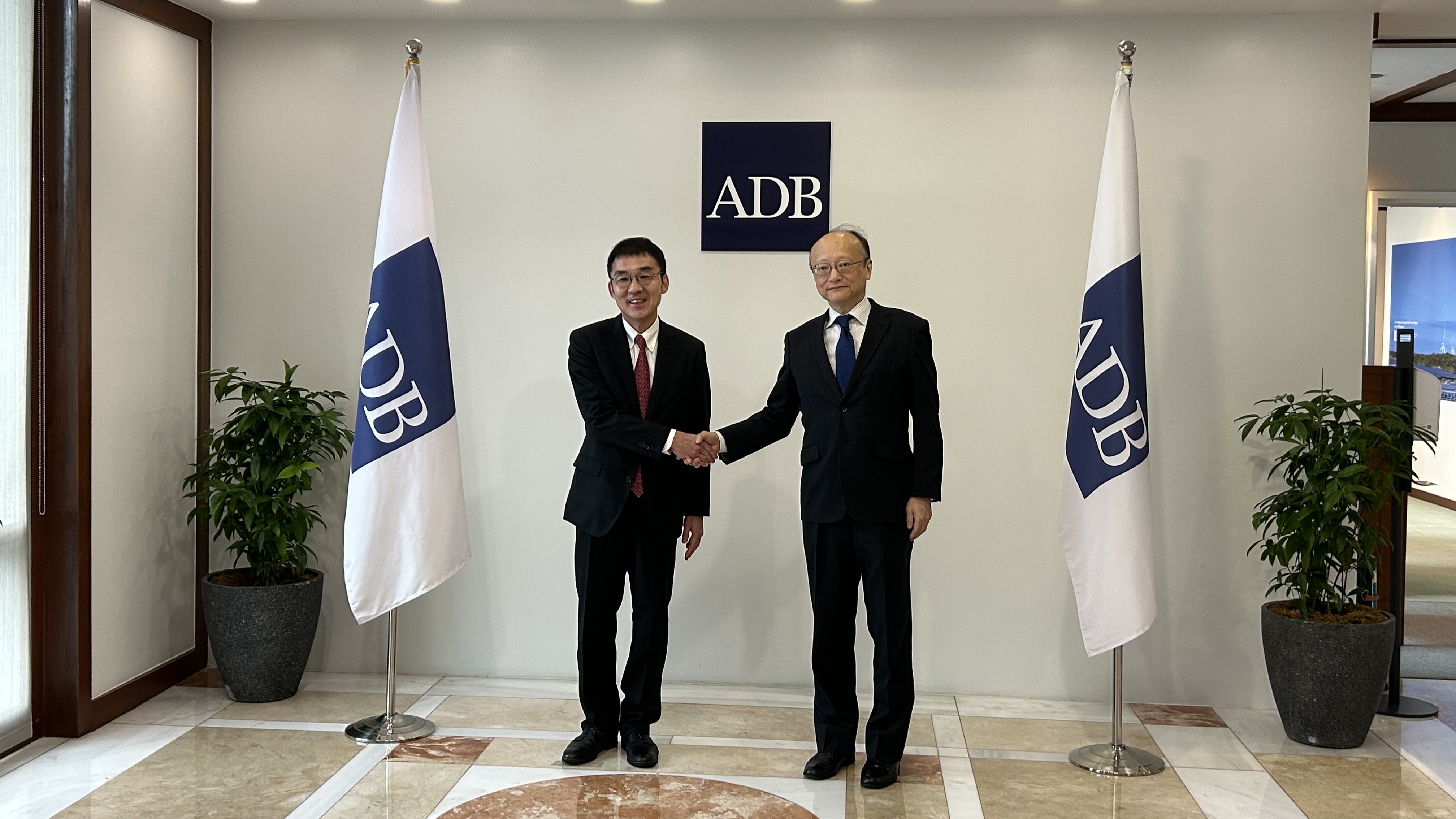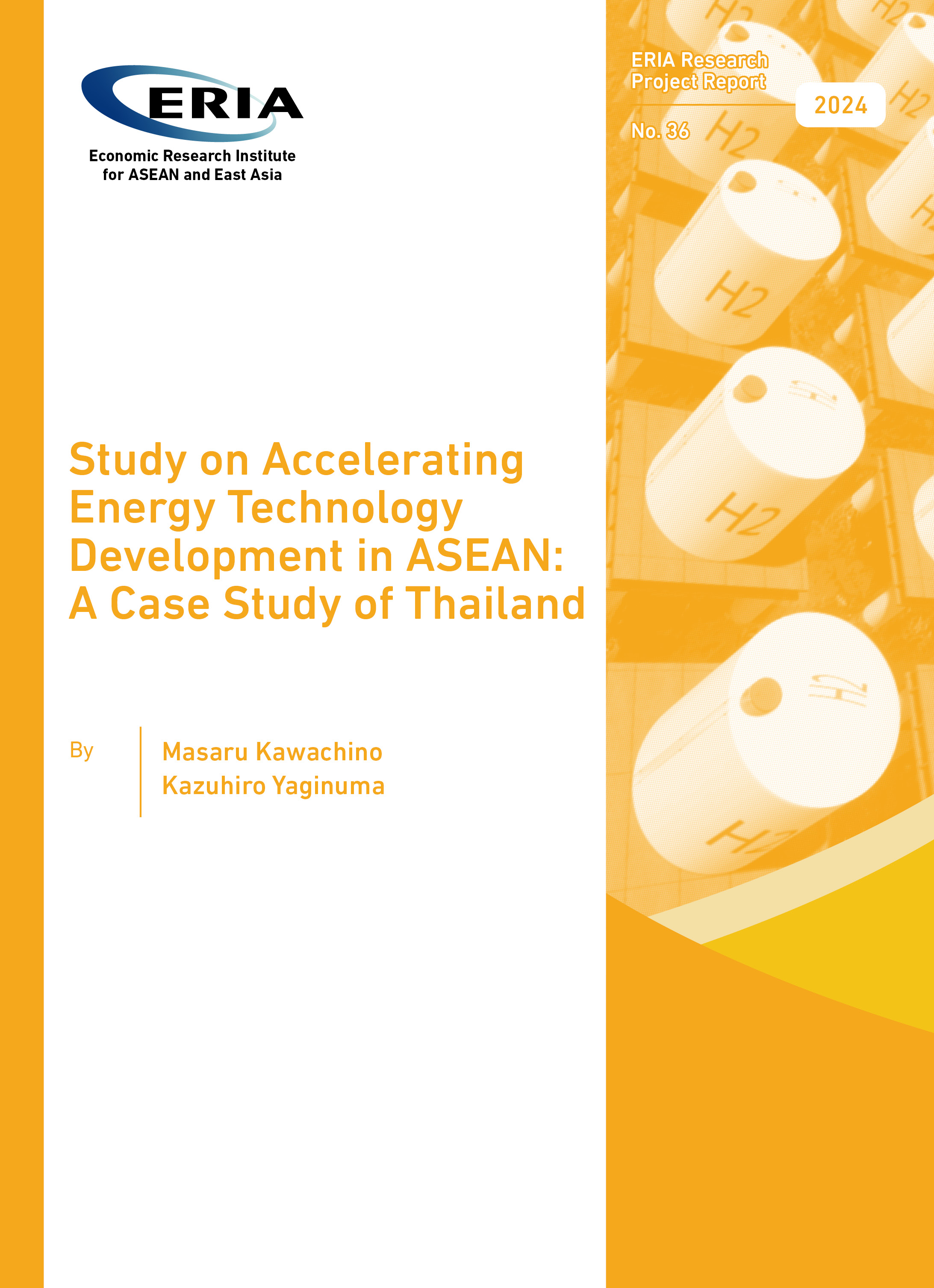ERIA Holds Second Working Group Meeting on Energy Outlooks and Analysis of Energy Saving Potential in EAS Region
Share Article:
Print Article:
Bangkok, 10-12 May 2023: The Economic Research Institute for ASEAN and East Asia (ERIA) and the Institute of Energy Economics (IEEJ) Japan jointly hosted a three-day working group meeting focused on energy outlooks and analysis of energy-saving potential in the East Asia Summit (EAS) region. This meeting brought together representatives from Australia, China, India, Indonesia, Japan, the Republic of Korea, Malaysia, Myanmar, New Zealand, the Philippines, Singapore, Thailand, the United States, and Viet Nam, both in-person and online.
On the first day, Mr. Shigeru Kimura, Special Advisor to the President on Energy Affairs, Energy Unit of ERIA, and Leader of the Working Group, commenced the meeting by providing an overview of the concept of cost comparison analysis between Business-as-Usual (BAU) and Low Carbon Energy Transition-Carbon Neutrality (LCET-CN) scenarios for energy consumption and investment. Ms. Citra Endah Nur Setyawati presented details on the unit capital cost of various power plants, including coal, gas, nuclear, biomass, hydropower, geothermal, solar PV, wind (offshore and onshore), and hydrogen.
The second day began with an opening address by Dr Weerawat Chantanakome, Ministry Councilor for International Affairs, Office of Permanent Secretary, Ministry of Energy Thailand, emphasizing the importance of the energy outlook study for the EAS region. Dr Han Phoumin, Senior Energy Economist of the Energy Unit of ERIA and Sub-leader of the Working Group, provided an update on the progress of the EAS Energy outlook report 2021-22.
During subsequent sessions, Working Group members presented the results of the LCET-CN scenario, including total final energy consumption, power generation, total primary energy supply, and CO2 emissions, comparing them with the business-as-usual and alternative policy scenarios.
On the third day, Mr Leong Siew Meng, Managing Consultant of Green Tech Solutions PLT Malaysia, delivered a presentation on the expected energy efficiency and conservation technology, with a particular focus on heat pumps. Mr Kimura then led roundtable discussions on the appropriate carbon-neutral pathway for each EAS country and the cost comparison between BAU and LCET-CN scenarios. Each member of the Working Group subsequently presented the results of the cost comparison analysis.
In the closing session, Mr Kimura announced the publication of the EAS Energy Outlook Report 2022-2023. The report includes updated LCET-CN scenarios for EAS countries, reflecting the current development of energy technologies, along with a comprehensive cost-comparison analysis between BAU and LCET-CN scenarios. Mr Kimura also highlighted the upcoming update of the EAS Energy Outlook in 2023-24. Dr Weerawat expressed appreciation for ERIA's support in conducting this energy outlook study, which will be beneficial for ASEAN+10 member countries.
The Working Group comprises Mr Shigeru Kimura, ERIA; Dr Han Phoumin, ERIA; Dr Joko Purwanto, ERIA; Citra Endah Nur Setyawati, ERIA; Ryan Wiratama, ERIA; Ms Suharyati Nugroho, National Energy Council, Indonesia; Mr Zaharin Zulkifli, Energy Commission, Malaysia; Ms Swe Swe Than, Oil and Gas Planning Department, Ministry of Energy of Myanmar; Dr Zhong Sheng, Energy Studies Institute, National University of Singapore; Ms Supit Kamklad, Ministry of Energy, Thailand; Mr Nguyen Minh Bao, Institute of Energy, Viet Nam; Mr Shamim Ahmad, Department of Climate Change, Energy, the Environment and Water, Australia; Ms Hui Li, Center for Energy and Environmental Policy Research, Beijing Institute of Technology, China; Ms Hien Dieu Thi Dang, Energy Efficiency and Conservation Authority, New Zealand; Dr Atul Kumar, School of International Studies, Jawaharlal Nehru University, India; Mr Endo Seiya, IEEJ, Japan; Dr Kyung-Jin Boo, Institute of Engineering Research, Seoul National University, Republic of Korea; Ms Clara E. Gillispie, National Bureau of Asian Research, the United States; and Ms Lilibeth Morales, Department of Energy, the Philippines.








